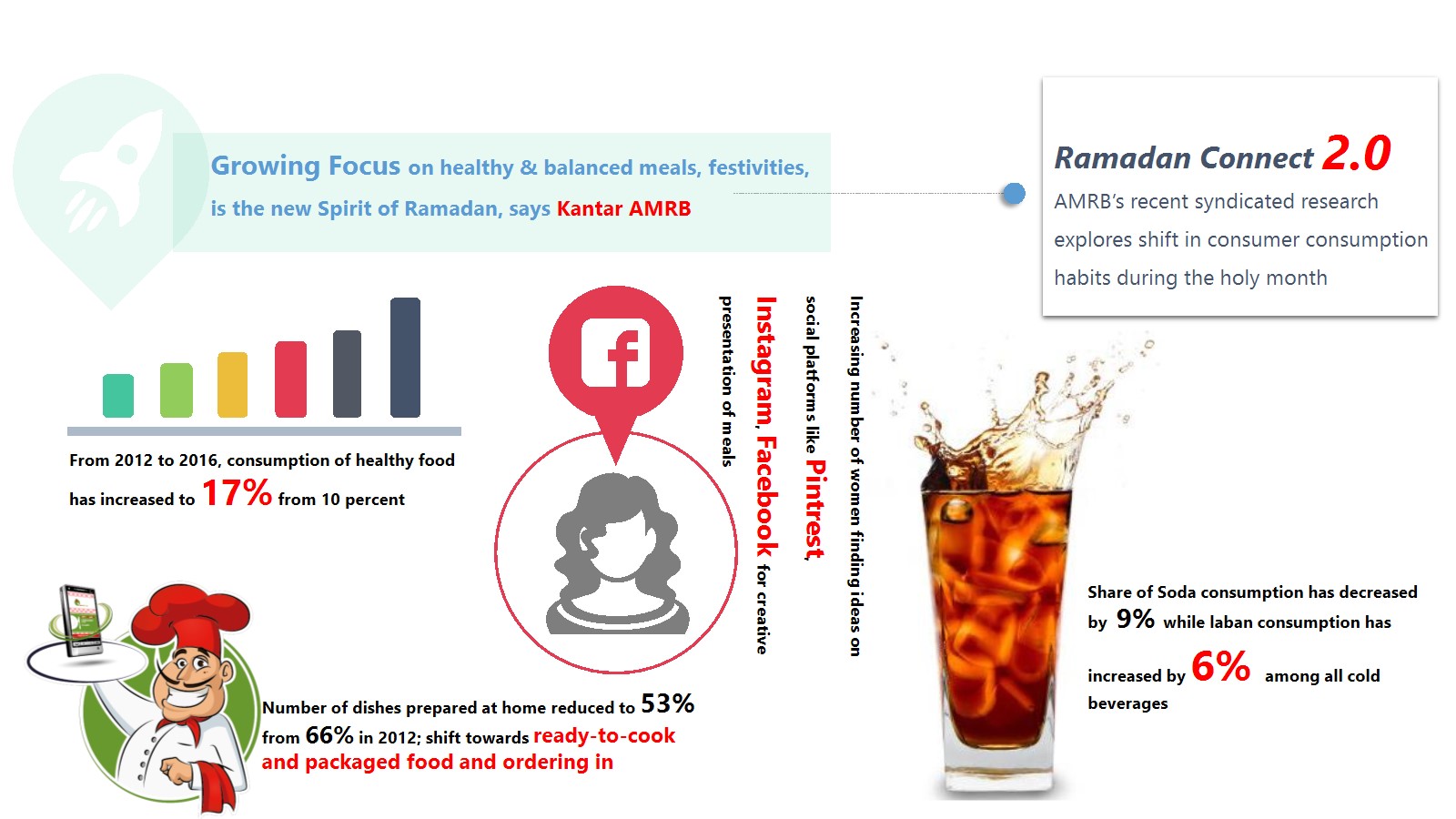
The holy month of Ramadan is just around the corner. Highlighting some unique behavioural shifts, research and consultancy firm Kantar AMRB has released a study, the highlights being creation of a festive Ramadan feel, less interactive family time, nutritious food, creative presentation and convenient meal options.
The research titled ‘Ramadan Connect 2.0’, took into account face-to-face interviews, focus groups and ethnographic interviews with local women to get a clearer picture of the finer nuances, trends and changes in the pattern during the holy month.
A deviation from the past, today’s woman believes in putting together healthier meal options, be it for Iftaar, Suhoor, dinner or snacks. From 2012-16, consumption of healthy food has increased to 17% from 10%. Item like fruits, laban, green tea, juices, soups and salads increasingly figure at the dining table.
Similarly, there is a growing focus on balanced meals to avoid the negative effects of ailments like indigestion, bloating, sudden weight gain and so on, which impacts wellbeing. There is also a reassessment of choices to minimise wastage in line with Ramadan’s spirit of austerity and simplicity.
“The key consumer concerns that homemakers face in Ramadan focus on how to create a perfect meal without compromising on taste, quality and presentation,” says Edwin Coutinho, associate vice president, Kantar AMRB, “For example, in Saudi Arabia, there is a 56% decrease in kitchen help in the last four years. Hence, more women have to rely on themselves to prepare meals and this puts a lot of onus on them. This requires a lot of planning in advance and we have seen a marked shift from a bulk-based buying approach to a need-based approach; that is, they plan out what they need and buy smartly. Cooking bases, such as dough and fillings, are also prepared before-hand while more women are now on a look out for ready meals for smoother cooking experience. Another trend includes ordering in – mostly limited to side dishes – and the number of dishes prepared at home has reduced to 53% from 66% in 2012. In fact, out of the food consumed at Iftar, 58% is store-bought.”
A few other key findings of the report include: